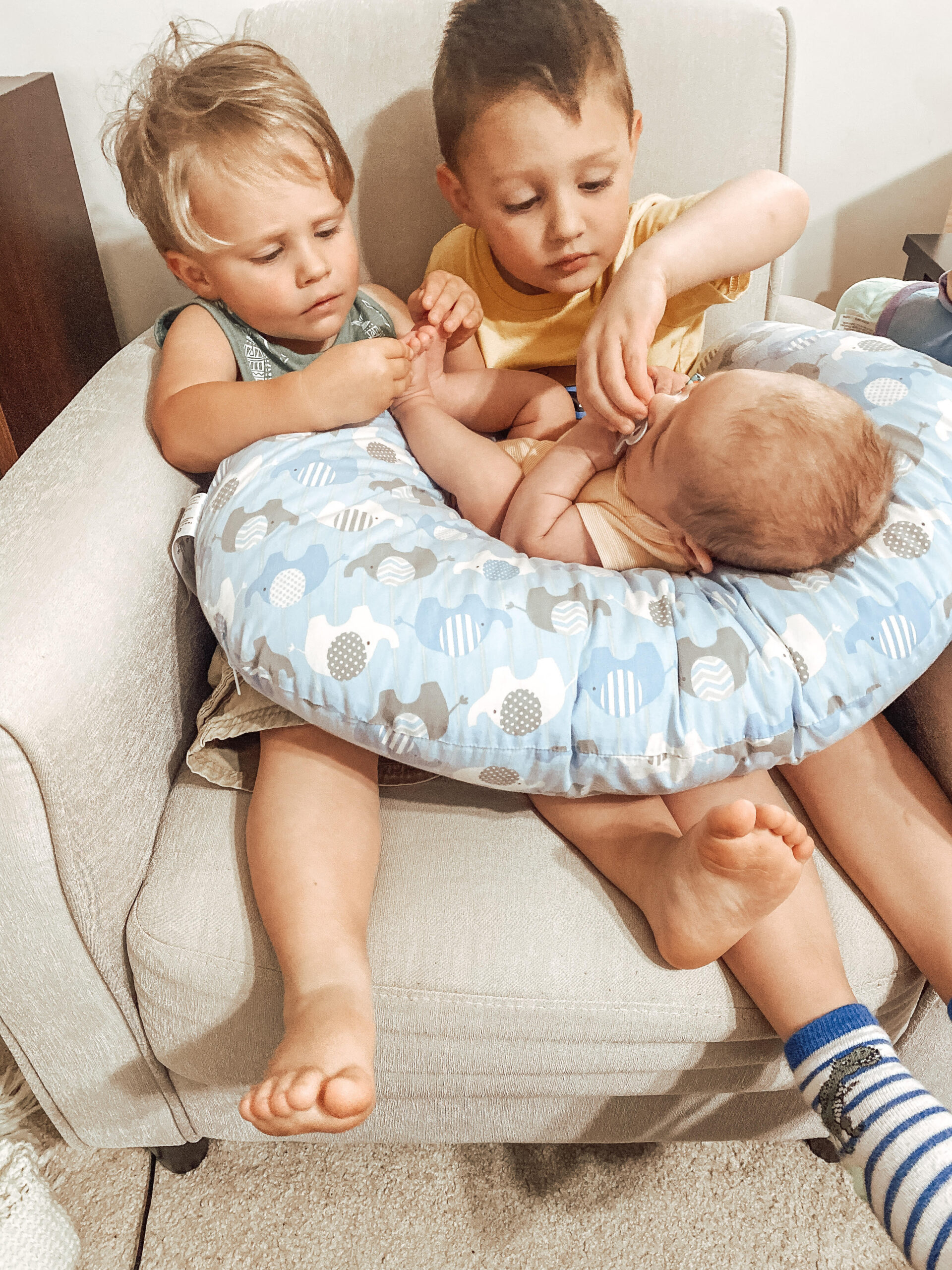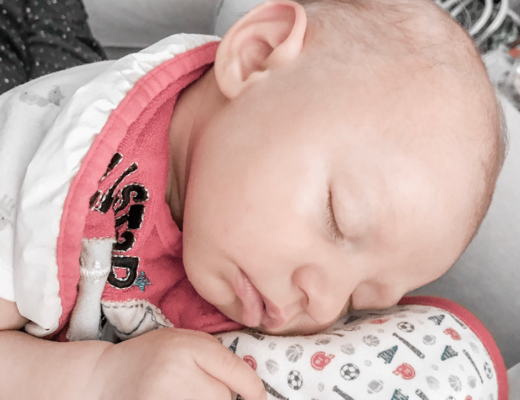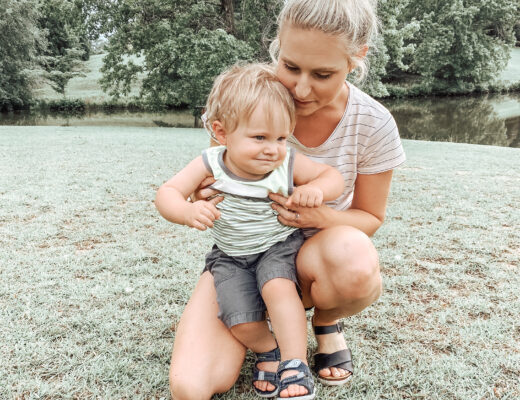This post may contain affiliate links and I may earn compensation from the companies mentioned in this post.
It all starts when you get pregnant. Whether you realize it or not, your child (or children) will notice changes and differences from you in regards to how you act, your ever-changing body and physical limitations, and your conversations with them and others. Constantly talking about the baby before the baby is even here, having morning sickness, new aches and pains, a growing belly that makes it hard to hold your other children, etc. doesn’t go unnoticed by your baby that is already here earth side.
We seem to think we need to prepare them for when the baby is actually here, but I think it should be a continuous conversation with them the moment you decide to tell them you’re pregnant. They will notice that things are no longer just about them but about someone else that they can’t process, understand, or even see yet. And this goes on for months. And then when they can actually see the baby and it’s born, they may not understand how this new thing fits into the family, the fact that it’s permanent and here to stay, that it will keep growing and get bigger and become easier to play with, and that your love for that baby doesn’t negate the love you have for your other child.
The more we keep their perspective in all this in the back of our mind, the easier it will be for them to adjust to this giant change in the family dynamic.
That being said, here are some practical tips to help you child become adjusted to the idea that a baby is coming:
- Explain to them what a baby is, what it needs, the fact that it cannot do anything for itself, and that it will grow and grow and won’t always be so fragile.
- Explain to your child that they were once a baby too and that everything you do for this baby, you also did for them when they were little and couldn’t feed, dress, or change themselves.
- Show your child old pictures and videos of them when they were little and even some of yourself, to help them understand how we all started out so that it feels more “fair” in their mind that you may be spending a lot more extra time and attention to the baby than them for awhile and that’s a good thing.
- Point out to them that they are getting bigger and praise them for all the things that they can now do all by themselves (kids love that confidence boost and being independent). Again, explain to them that that’s why you’re spending all this time with the baby right now so that eventually they can grow to be as big as their older sibling and do all the cool things that they can do as a big kid.
- Get them their own baby or stuffed animal of some sort to care for and practice with prior to the baby coming so that they already understand some of the care-taking by the time the baby is born and it isn’t such a shock to them.
- Try not to use the baby as an excuse. Whether you mean to or not, I know it can be challenging but try to pay extra attention to your language and how you’re phrasing things to your child. If your child wants you to play with them, but you’re busy feeding the baby, instead of saying, “I can’t because I’m feeding the baby right now”, try saying, “I would love to play with you, sweetie. I’m almost done feeding the baby and when I’m done, I’ll be ready. Why don’t you go get your toys ready and pick out what you want us to do?”
- Allow them to help. Kids love attention and to be included in things and it can be hard to remember that when you’re constantly being needed by your new addition. Let them help you with diaper changes, singing lullabies, making baby laugh, bringing you things, etc.
- Expect some behavior changes in your child. This is a big adjustment for them and they may not be able to clearly communicate to you what their needs are. This could come out in the form of temper tantrums, being extra needy or clingy, regressing, etc. Don’t be surprised if they start to act like a baby to get your attention. Take this as a warning sign that they are searching for your quality time or affection, whichever they need according their love language and try your best to fill their bucket.
- Try to have 1:1 time with them a little bit each day. Quality time with them is way more effective than quantity. Even just 10 minutes of uninterrupted 1:1 time with them a few times throughout the day will go far.
- Show them you love them in many ways whether it’s reminding them how much you love them, doing something special for them, playing with them in an activity that they pick out, snuggling and giving them extra hugs, will help them feel less forgotten. Include them in as much as you can.
The earlier you start these conversations and practices, the easier the adjustment will be for everyone. Because trust me, the last thing you want when newly postpartum and trying to take care of a newborn is managing the emotions and tantrums of a toddler or young child.







No Comments